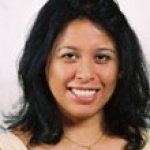Sonita Sarker holds the Luis Selis Visiting Fellowship at the IMLR, 2017. Here, she introduces the research she will be undertaking as part of her fellowship:
The traditional academician’s stance is to remove themselves from their field of study and present their findings. These findings are, traditionally, supported by a web of sources and presented through an analytical framework. The author/academic must disappear yet the choice of sources, the analysis, and the intellectual position must be infused with their experience and filtered through their lens. Feminist methodology, mostly but not exclusively in the social sciences, is rich in discussion about the relationships between subjectivity and objectivity, as well as how and whether they affect the presentation of our work.
Underlying the relationships between subjectivity and objectivity is positionality, that is, the critical awareness of our own position, experience, ideas, and realities as they affect the production of our work. It is an honour to be awarded the first Luisa Selis fellowship for which I am writing this blog, and it brings with it an ever-present awareness of my relationship to the realm of studies on Sardegna (Sardinia).
Who am I and why does it matter how I am related to the work I am doing on Antonio Gramsci and Grazia Deledda, two illustrious Sardinians? I have lived in South Asia, Western Europe, and North America. I have studied in institutions of higher learning and have held a teaching position in a liberal arts college for more than 20 years. That is all to say that my gendered, racialised, and classed positions (at least) play a role in my particular experience of academia and life across these continents. My movements within and across Anglophone modernism and now Italian modernism (thus Gramsci and Deledda) are coloured by familiarity and unfamiliarity. A constant destabilisation is not at all a bad thing, in my experience: I am compelled to scrutinise once again ideas and paradigms I had taken as given, and see them suddenly in new ways. New ideas and paradigms present their own fruitful challenges. I have been multilingual all my life but the particularity of academic research with roots in the real lives of Deledda and Gramsci offer exciting possibilities. Can I offer Deledda and Gramsci to you in new ways, based in my positionality?
Professor Sonita Sarker, 2017 Luisa Selis Visiting Fellow



